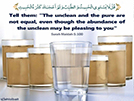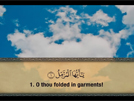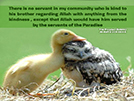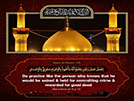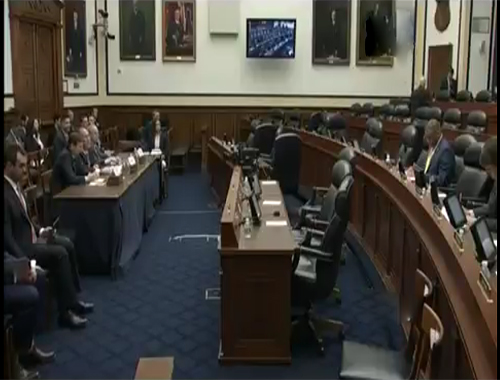
“O Spirit of Allah, I have come to ask for the hand of the daughter of your successor Simon in marriage for this son of mine…” (The words of Prophet Muhammad (P.B.U.H&H.P) addressing Prophet Jesus (A.S))
Bishr ibn Sulayman was one of the lovers of Imam Hadi (A.S) and Imam al-Askari (A.S). He was the neighbor of these two Imams in Samarra. He has narrated that:
One day Imam Hadi (A.S) called me. He then wrote a letter in Roman, stamped it with his ring, gave the letter to me along with two hundred and twenty gold coins and said,” Take these to Baghdad, and get to a specific location. Some boats which carry a group of captives will arrive there in the morning”. Then he described one of the captives for me, and ordered me to give her the letter, and to say that I was the representative of the owner of the letter, so that she would follow me.
I acted as Imam Hadi (A.S) had ordered me. I found the captive the Imam (A.S) had described, and gave her the letter. When she saw the letter, she was driven to tears, and agreed to follow me. When we reached a resting area in Baghdad, she took the letter of Imam Hadi (A.S) out, started kissing it and wiping it over her eyes. I asked her in shock,” You are kissing a letter whose writer you do not know?”
She said,” You cannot understand the greatness of the children and successors of the Prophets. Listen to me so that I narrate my story. I am “Malakah”, daughter of “Yashu’a” (son of the Roman Emperor). My mother is a descendant of Simon, the successor of Prophet Jesus (A.S).
One night, I saw Prophet Jesus (A.S) and his disciples in my dream making a pulpit of light. Then, the Prophet of Islam, Prophet Muhammad (P.B.U.H&H.P) and his successor and son-in-law, Ali ibn Abi Talib (A.S) and a number of the Imams among his children blessed the palace with their presence.
Then, Prophet Jesus (A.S) received Prophet Muhammad (P.B.U.H&H.P). Prophet Muhammad (P.B.U.H&H.P) said,” O Spirit of Allah, I have come to ask for the hand of the daughter of your successor Simon in marriage for this son of mine”, and he pointed to Imam al-Askari (A.S).
Prophet Jesus (A.S) then said to Simon,” The glory of the two worlds has turned to you. Connect your progeny with that of Prophet Muhammad (P.B.U.H&H.P)”.
Simon accepted the offer, so all of them went on top of the pulpit. Prophet Muhammad (P.B.U.H&H.P) recited a sermon, and he and Prophet Jesus (A.S) married me to Imam al-Askari (A.S), while children of Prophet Muhammad (P.B.U.H&H.P) and the disciples were witnessing.
Later, Imam al-Askari (A.S) came to my dream and informed me that:” Your grandfather will send an army to the Muslim territories. You have to join them while wearing the clothes of the maids so that you would not be recognized”. I followed the instructions. The Muslim army fought ours and achieved victory, so we were caught as captives, and you saw how it ended. No one other than you knows that I am the daughter of the Roman Emperor. I introduced myself to the old man who made ma captive as “Narjis”.
Bishr ibn Sulayman narrates that:
“When I took her to Imam Hadi (A.S) in Samarra, he asked her,” How did Allah (S.W.T) show you the glory of Islam and the honor of Muhammad (P.B.U.H&H.P) and his family?
She replied,” How can I describe to you something which you know better than me?”
Imam Hadi (A.S) said,” Glad tidings to you for a son that shall become the king of the east and the west of world. He shall fill the earth with justice and equity after it will be filled with injustice and oppression. He is the son of the person whom the Messenger of Allah (S.W.T) married you to”.
Then, he said to his sister, Hakimah Khatun,” Take her home and teach her the obligatory and recommended acts, as she is the wife of Imam al-Askari (A.S) and the mother of the Saahib al-Zaman (Owner of Time, referring to Imam Mahdi(A.S))”.
Indeed Narjis had the best social status and the best means of joy and comfort in the Roman Empire at that time; however, she manifested purity and sincerity in herself in a way that the Messenger of Allah (P.B.U.H&H.P) married her to Imam al-Askari (A.S), and she was honored to become the mother of unique savior of the world. Nevertheless, Imam Hadi (A.S) has taught is that besides all the qualifications, the best and most fundamental foundation for a family is based on knowing the commands of Allah (S.W.T) and fulfilling them. Therefore, when such a family, which will create the destiny of mankind, was about to form, the first step was to learn the Divine commands.
So on what basis do we form our lives?
(The above is a selection taken from “Al-Abqari al-Hisan fi Ahwal Maulana Sahib al-Zaman”, by Ayatullah Shaykh Ali Akbar Nahawandi (with some changes and additions))
Taken from: Roshd Islamic Shia Website
 Ali ibn Abi Talib (A.S) - Islam Guidance
Ali ibn Abi Talib (A.S) - Islam Guidance
